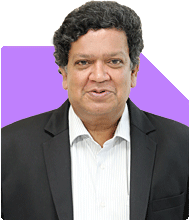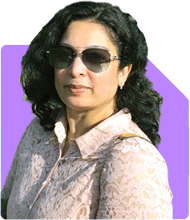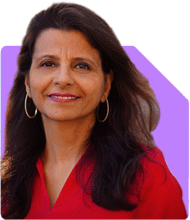Dr Ashit Hegde | Answer |Ask -Follow
Consultant Physician, Internal Medicine and Critical Care Expert - Answered on Apr 21, 2023
He is actively involved in teaching and training residents for post graduate programmes in internal medicine and critical care.
He holds an MD degree in general medicine and therapeutics from the Lokmanya Tilak Municipal Medical College, Mumbai, and an MRCP from the Royal College of Physicians, Edinburgh.... more

Hello Dr. i am having Stomach Ache, Bloating Acid Reflux, GERD due to tuberculosis medicines taken 12 years back. i have taken may kind of medications but nothing work and all seems temporary solutions. Because of this i am always feeling weak and like no nutrients to the body> Kindly provide some solution to it
Avoid coffee, chocolates, nuts , oily food.
You may like to see similar questions and answers below
Roopashree Sharma | Answer |Ask -Follow
Yoga, Naturopathy Expert - Answered on Oct 05, 2021
Roopashree Sharma | Answer |Ask -Follow
Yoga, Naturopathy Expert - Answered on Jan 20, 2022
Komal Jethmalani | Answer |Ask -Follow
Dietician, Diabetes Expert - Answered on Feb 18, 2023
Dr Ashit Hegde | Answer |Ask -Follow
Consultant Physician, Internal Medicine and Critical Care Expert - Answered on Apr 29, 2023
Dr Karthiyayini Mahadevan | Answer |Ask -Follow
General Physician - Answered on Oct 21, 2024
Nayagam P P |10854 Answers |Ask -Follow
Career Counsellor - Answered on Dec 14, 2025
Radheshyam Zanwar |6744 Answers |Ask -Follow
MHT-CET, IIT-JEE, NEET-UG Expert - Answered on Dec 14, 2025
Radheshyam Zanwar |6744 Answers |Ask -Follow
MHT-CET, IIT-JEE, NEET-UG Expert - Answered on Dec 14, 2025
Dr Dipankar Dutta |1840 Answers |Ask -Follow
Tech Careers and Skill Development Expert - Answered on Dec 14, 2025
Dr Dipankar Dutta |1840 Answers |Ask -Follow
Tech Careers and Skill Development Expert - Answered on Dec 13, 2025
Dr Dipankar Dutta |1840 Answers |Ask -Follow
Tech Careers and Skill Development Expert - Answered on Dec 13, 2025
Mayank Chandel |2575 Answers |Ask -Follow
IIT-JEE, NEET-UG, SAT, CLAT, CA, CS Exam Expert - Answered on Dec 13, 2025
Radheshyam Zanwar |6744 Answers |Ask -Follow
MHT-CET, IIT-JEE, NEET-UG Expert - Answered on Dec 13, 2025
Mayank Chandel |2575 Answers |Ask -Follow
IIT-JEE, NEET-UG, SAT, CLAT, CA, CS Exam Expert - Answered on Dec 13, 2025
Mayank Chandel |2575 Answers |Ask -Follow
IIT-JEE, NEET-UG, SAT, CLAT, CA, CS Exam Expert - Answered on Dec 13, 2025

























